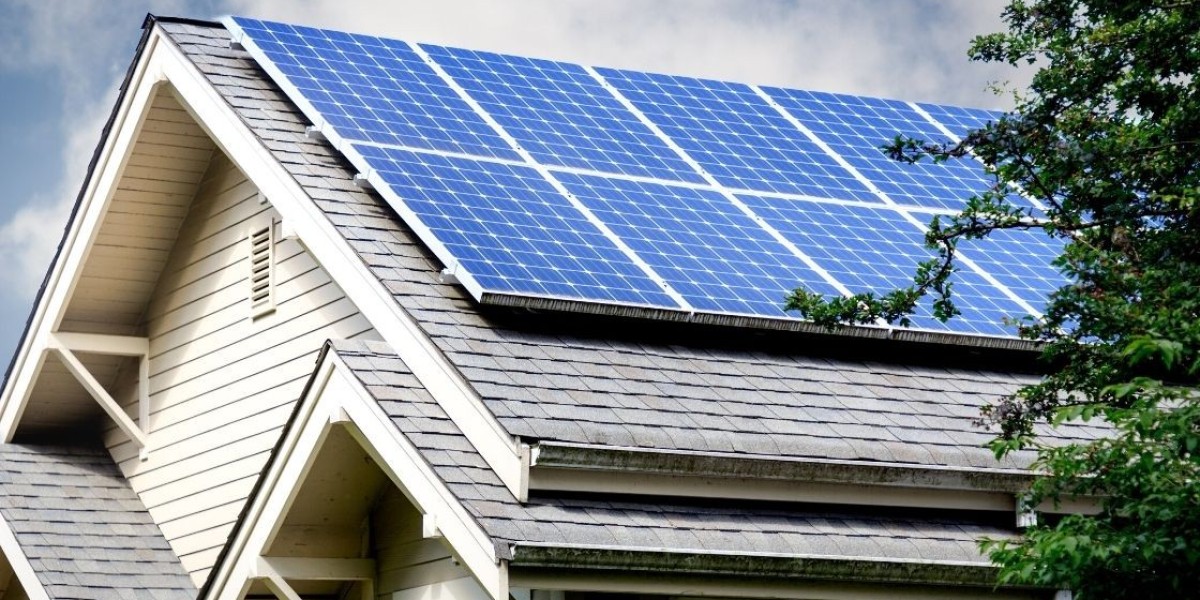As businesses look for ways to cut costs and improve sustainability, solar power has emerged as a smart, long-term solution. Solar energy systems not only reduce electricity bills but also help companies meet environmental goals by reducing their carbon footprint. In this article, we’ll explore how solar systems can benefit businesses financially and environmentally, while also addressing some key factors to consider before investing in a solar solution.
Why Solar Systems are a Good Investment for Businesses
Switching to solar power can significantly lower the operating costs of a business, especially those that have high energy needs. By installing solar panels, businesses can generate their own electricity, reducing reliance on the grid and shielding themselves from fluctuating energy prices. Over time, this leads to substantial savings on utility bills.
One of the biggest advantages of investing in solar energy is its ability to pay for itself. The initial cost of a solar system can be offset by government incentives, such as tax credits and rebates. Furthermore, the energy savings made over the years often exceed the initial investment, providing a steady return on investment (ROI) for businesses.
Environmental Benefits of Solar Energy
Beyond the financial gains, businesses today are also prioritizing sustainability. Solar energy is clean, renewable, and doesn’t produce harmful emissions. By shifting to solar power, companies can significantly reduce their carbon emissions, helping combat climate change. This shift not only enhances a business’s reputation but can also attract environmentally-conscious customers and investors who prioritize sustainability.
The Role of Solar in Business Growth
For industries where energy consumption is a major part of the budget, like manufacturing and IT services, solar energy can be a game changer. Solar systems provide energy security, ensuring that businesses are not affected by power outages or disruptions in the grid. This is especially beneficial for businesses that operate 24/7 or rely heavily on electricity for production and data storage.
In addition, solar systems can boost business growth by freeing up funds that would otherwise be spent on energy costs. These savings can be reinvested into other areas of the company, such as expansion, research and development, or employee benefits. Many businesses that have adopted solar systems have reported not only reduced operational costs but also improved overall productivity.
Choosing the Right Solar System for Your Business
Before deciding on a solar system, businesses need to evaluate their energy needs, available space, and budget. Different businesses require different solar system sizes, and the most appropriate system will depend on the amount of energy consumption. For example, companies with larger operations may need more powerful systems like a 10kV solar system to meet their energy demands.
Understanding the costs involved is crucial. The 10kV solar system price in Pakistan can vary depending on the quality of the panels, installation fees, and the specific needs of the business. While this system can generate enough power for medium to large-sized businesses, it’s important to get quotes from several suppliers and compare the costs to ensure you’re making a sound investment.
Installation and Maintenance of Solar Systems
Once a business has decided on the appropriate solar system, the next step is installation. The installation process typically takes a few days to weeks, depending on the size of the system and the complexity of the installation. It’s essential to hire a professional installer who is experienced with commercial solar systems to ensure that the setup is done correctly and efficiently.
Maintenance is another important factor to consider. Solar panels generally require minimal upkeep, but regular inspections are necessary to ensure they are operating at maximum efficiency. Cleaning the panels, checking the inverters, and monitoring energy production can help prolong the life of the system and maximize savings.
Financing Options for Solar Systems
Investing in solar systems can be expensive, but various financing options are available to make it more accessible for businesses. Many banks and financial institutions offer loans specifically for renewable energy projects. Additionally, businesses can explore leasing options, where they can pay a monthly fee for the use of the solar system without needing to pay the full upfront cost. Power purchase agreements (PPAs) are another popular option, allowing businesses to buy solar power at a fixed rate while the provider owns and maintains the system.
Conclusion
Solar energy systems present a fantastic opportunity for businesses to reduce energy costs, enhance sustainability, and improve operational efficiency. With the potential for long-term savings, tax incentives, and an environmentally friendly image, investing in solar is a smart decision for companies looking to future-proof their operations. Whether you’re a small business or a large corporation, switching to solar power can provide both financial and environmental benefits, helping you stay competitive in a rapidly changing world.
As you consider your options, be sure to research the 10kV solar system price in Pakistan and explore how such a system could meet your business’s energy needs while keeping costs down. By choosing solar, your business not only takes a step toward financial independence but also contributes to a cleaner, more sustainable future.








